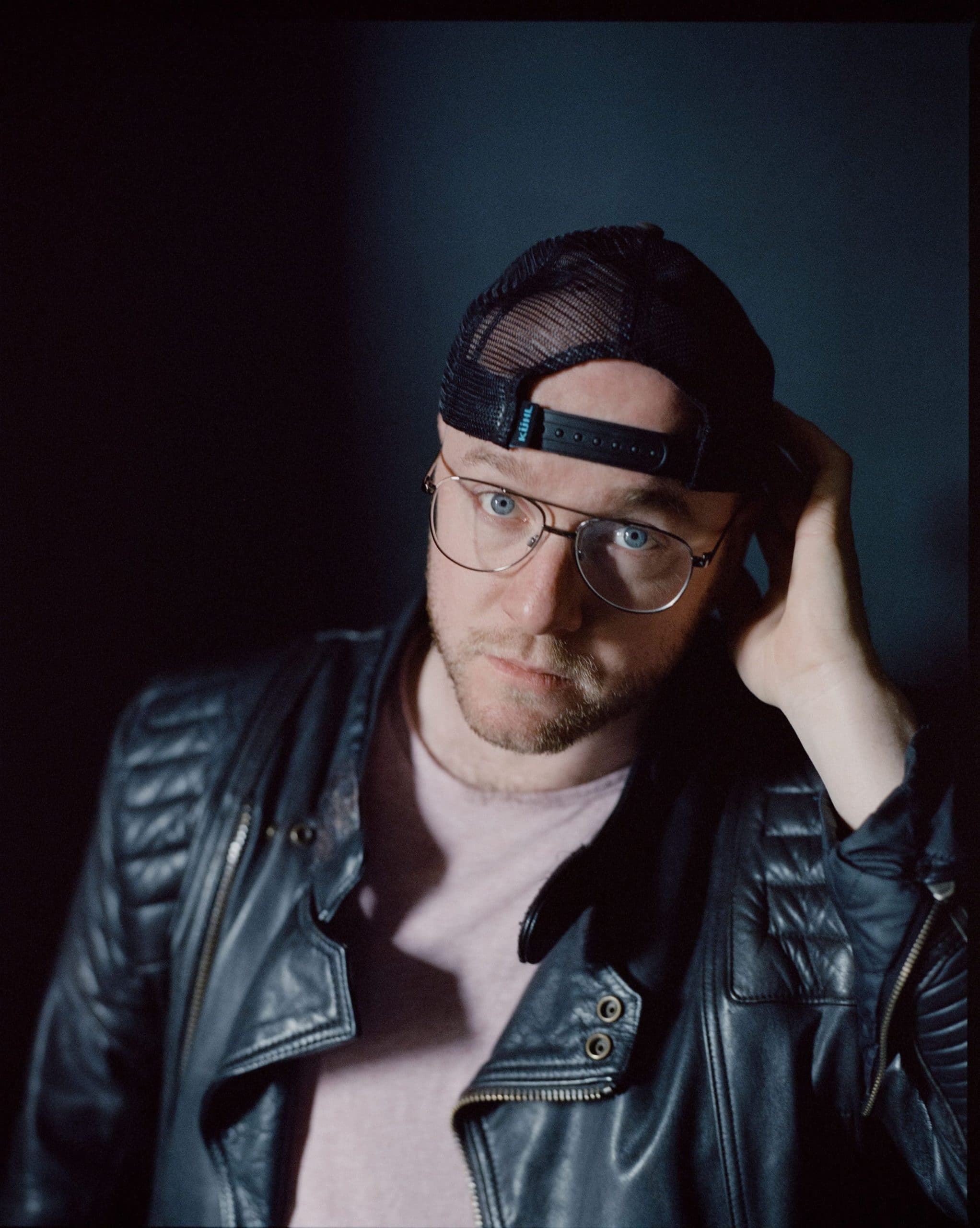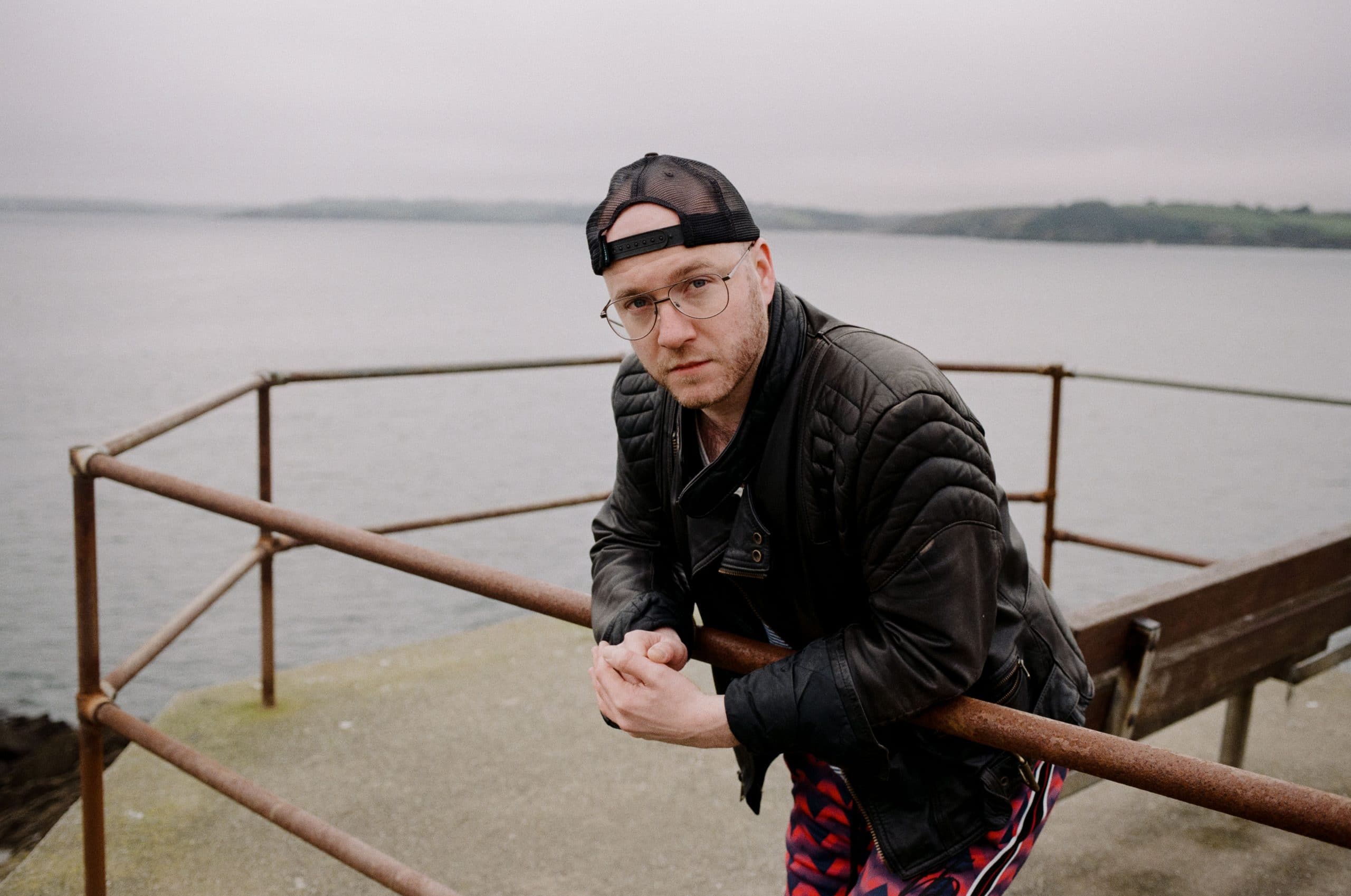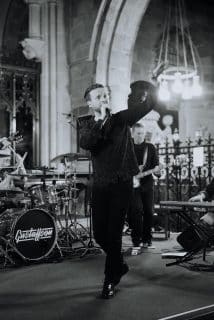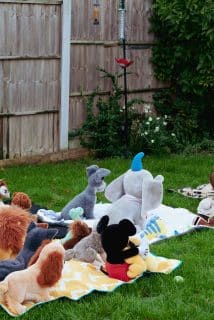“Outward aggression, inwardly dying!”
Culture
Former Wild Beasts man Tom Fleming is back with a new solo project called One True Pairing. Here he speaks to us about vulnerability, keeping it raw, song writing and the importance of having something to say.
Wild Beasts were one of those bands that people only truly appreciated once they were gone. One of the best bands to emerge in the last flourishing of indie bands in the late 00s, they released five albums and seemed set for a long career of increasing acclaim – until they surprised everyone by splitting in 2017, on good terms it seemed but perhaps burnt out, or clean burnt, by the industry. Fast forward to the present and Tom Fleming from the band is emerging from the mist as a solo project called One True Pairing. The album of the same title has just come out and we are very excited about it indeed. Fleming was always a clearly talented vocalist, instrumentalist and songwriter, but out on his own for the first time, it’s exciting and somewhat gripping to find an artist breaking new ground for himself and then dances on a knife-edge while he’s there. For the selection of new tunes are unnervingly raw and yet weirdly anthemic, where you may find yourself singing along to music that also accuses you of not paying attention to the world around you. It’s a record that makes perfect sense sense now with such discontent and also defiant hope going on. Basically, it’s fucking good, so listen to it. We managed to grab Tom for an interview about the risks and thrills of venturing out on his own…
What’s been going on with you since the band split – this is a very rich album you’ve clearly put a lot into, how did you begin?
I wanted to make a thoughtful record but I didn’t want it to come across as intellectual. I wanted to have directness and use as few metaphors as possible. I wanted to say something because that’s what I mean.
But I didn’t have songs when the band broke up and I realised that I needed to start work again. I had my little mourn, my little sulk, which lasted a good long time – I was out of action for about a year, artistically speaking. So yeah it was time to start doing something again. I need pressure to write, like when you can’t pay for stuff!
A year seems like a reasonable time to decompress and regain your strength…
I swore after Wild Beasts’ last show in Hammersmith I was going on holiday, I’d go to Disneyland or something. And I never did, I just started work again. And this record was made over quite a stretched out period of time. The songs were written quite quickly but I was in and out of Ben Hillier’s studio down in Sussex, and working on other projects, like touring with Nadine Shah. I wasn’t used to working alone either, so I had ideas but then would go away and then come back once I’d worked on them more.
What was your approach to writing?
I had the name first. I always have titles first.
The songs do have brilliant titles by the way…
Thank you! That’s the first thing I do to hang everything on and then from there I can continue. All the songs were written on acoustic guitar with vocals, to keep me honest. I didn’t know what I wanted it to sound like but I wanted it to be a song first.
I had 3 or 4 songs, I’m Not Afraid, Dawn At The Factory, King of the Rats, then I was like, ‘ok that’s a collection we can work out what it’ll be from there. There’y all quite simple songs, three chord rockers really.
But they have lots of interesting layers on top though.
I was listening to a lot of big time rock music to keep me going. I’m aways tempted to stray into abstraction, so I listened to Born In The USA, The Joshua Tree, Tom Petty, AC/DC. To also have that in mind. Ben Hillier really got that, and would use a drum machine, to keep it railroaded, to keep the tempos high. Essentially though it would all live or die on the vocal, which is the last thing I do.
So I thought it would work, but it’s really hard to tell when you’re doing it. That’s why working with someone is really good. To remind you that’s what we’re doing when I was saying, “Oh my god, it’s shit, I hate it!”
Was there a sense of exercising old muscles when you were recording?
Yeah, and exercising new ones. I had more ideas than I thought but I needed a lot more confidence than I thought. Being a solo artist is like being a stand up, you have to project confidence from the get-go or no one cares.
When you were in Wild Beasts was it a more protective environment in that sense?
Yeah I’d call it protective especially the way we operated, it was us against the world. And whether it was real or not that’s how it felt. That gang mentality was definitely something that we had. It was a closed unit. Now it’s a bit more open and that comes with challenges but there’s benefits: I can ‘do what I want’. I’ve got to drive now so the risk is different.
Was there a particular track that was a breakthrough for you?
The title track. Its quite a simple song, we had the rhythm but then Ben found the sound. You’ve got the aggressively digital synths and the big Def Leppardy guitar, and its sort of a love song but I’m yelling it. That was it!
I remember I did the vocal for King Of The Rats in one take. Ben was like, ‘you’re not doing that again.’ And I said it sounds really rough, and he was like, ‘yeah it was good’. I said this is a ballad, and he said, ‘No its not, you sound like you’re going to knock me out, it’s great.’ That kind of push and pull was cool.
How are you finding performing solo?
It’s fun. At the moment its just two people on stage, me with guitar and singing, and my friend Josh on synthesiser and drum machine. I’m aiming for Suicide and hitting Pet Shop Boys. I want it to feel a bit Sleaford Mods-y. I love that band and its got that directness to it.
It seems very direct lyrically…
I wanted to be unambiguous with what I’m talking about. But the reason is it’s not in my name is that I’m not always speaking in my own voice. The me isn’t always me.
Lyrically, there’s a lot of both sincere and ironic nostalgia on the record. Sounds of my childhood, but also a lot of implicating the listener about being too nostalgic, talking about the people I grew up with and that perpetuation of violence and horrible behaviour. The fatalism of the British class system. I didn’t want to make a navel gazer I wanted to reach into people’s kitchens and grab them. That’s what you have to do. Its’s what should be doing as an artist aiming for maturity, you can’t be forever in your 20s dicking about doing songs about shagging. There’s a point where you say, what’s going on?
Was it a reflection on what made you, on the environments that shaped you?
Yeah there is a bit of that. That’s what I’m getting my head around, how did I end up here? As one of my friends put it: it’s the transition from being a young man to being a shit man! It’s that sense of what could I have done better, what was stacked against me, where have I failed? What can I change, what can’t I change? What refuses to change. And what about this experience have I learned? And it is a learning thing. There’s a lot of frustration on the record but I hope its got some energy and fight.
Are you looking at specifically issues around being a man?
The one thing that worries me about this record is that I’m not really doing the narrative around toxic masculinity and white male privilege. I’m not doing the narrative I’m exploring the gaps in it. Obviously those things are a problem, but there is more to it than just those headlines. I’m trying to explore those things a bit more. A lot of those narratives fall short and are usually written by people for whom that no longer bothers them or never has bothered them. It’s easy to be generous when you’re at the top. It bothers me that we have the fake woke left and the hard right, and no-one’s talking to each other. I wanted to implicate the listener in this, and say, you helped to create this, you do this all the time. So do I , so do we all. It’s not a polemic, I don’t mean it to be a state of the nation or anything, it’s just meant to be have something to say, and be in the world, rather than being an artist over one side.
After the break up of the band and then putting this together, how have you found your support network around you…
I’ve honestly been really heartened by it. There’s always this see-saw of: this is amazing, this is shit. This vanity and self doubt. They’re the same thing, they come hand in hand. But once I started getting to where it was obvious I was going to put something out, the amount of love I received from people was really cool.
It might be an age thing but people are getting better at talking. It’s ok to go for a pint and not really talk to each other, that’s fine, to chat shit, that’s part of the healing process, but equally when it gets down to it you can have some really good conversations with people.
What were your early impressions of being a kid growing up in Kendall?
There’s much worse places to grow up but I always found it quite a tough place. I was happy to leave when I was 18, 19, not because it was awful but because there was a big world out there. But it was great place to be a young kid. I was walking through Holloway and musing on the fact there’s nowhere to hide in London, you’re always observed in a city like this, whereas out in Cumbria you aren’t. You’re not supervised, you work it out.

What are you hoping people will get from the record?
I’m hoping a sense of energy, that this isn’t an established guy who was in a band once who’s just making a record cos…that it instead has a reason to exist. I’m trying to do something and say something. Whether people engage with it on that level I don’t really mind, though, as its supposed to have songs on it. I didn’t want it to be dinner party electronica, which it could have been. There’s a lot of that and its definitely a mode people work in now, and I hate it with a passion.
What’s coming up in terms of shows?
I’m on tour in October, November in Europe and the UK. I’m eager to tour and getting in front of people its just a matter of making it work.
How do you look after yourself physically and mentally and has it changed from the way you used to?
Its definitely changed, I have to look after my voice. I sing really loud so I have to look after that. There was a period in Wild Beasts where I was drinking a lot and I’ve kind of dialled that back a bit. I’ve been diabetic for 25 years so I’m looking after that a lot better than I was. But it comes a point when its like do you want to party or do you want to make music? There is a point where that’s a choice rather than it coming all as one thing.
Being a diabetic, did you have to make compromises, particularly on tour?
I wouldn’t say compromises, I’ve often lived despite it. And being a touring musician is the last thing you should do, short of being a marathon runner, or a pilot. But the medication has come a long way since I was a kid. I used to get shit advice shit medication, and I was an angry teenager and wasn’t able to deal with it. And I perpetuated that into my twenties, and started to have more serious problems. I’ve had treatments like injections into my eyes. That’s quite a real experience.
I would not like that. Is there a vulnerability in being a solo artist?
A dichotomy exists – the vulnerability and power of being a musician. On a lot of the record, I’m singing about vulnerable things but I’ve got iron plate armour on. That’s the way I was delivering it, singing about real stuff but being ‘don’t fuck with me’. That’s what I had in my head. But I feel good about putting it out and good about doing shows and it seems like it’s resonating so I feel less naked now.
Any good advice that carries you through things?
I’ve got one – I can’t remember who said it, but it’s: ‘Don’t wrestle with a pig. You both get dirty and the pig likes it.’ Which could not be more relevant today.
What’s your own favourite lyric on the record?
From King Of The Rats: ‘I’m a dog you just can’t kick enough/show me love and I might just bite your hand clean off.’ Which is very thematic for the record. Outward aggression, inwardly dying!
Trending

Join The Book of Man
Sign up to our daily newsletters to join the frontline of the revolution in masculinity.

















